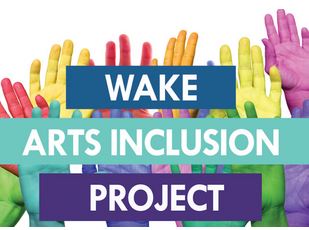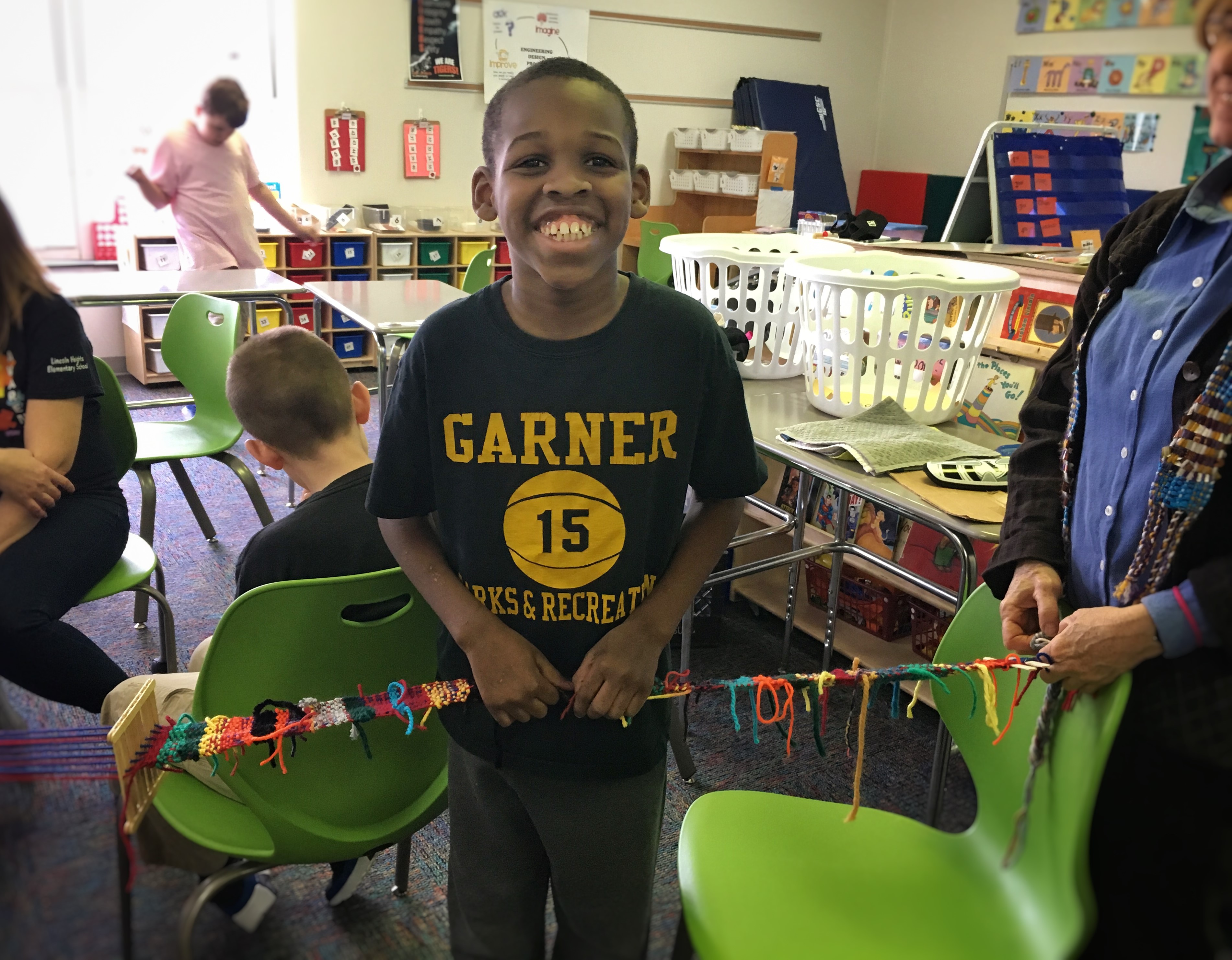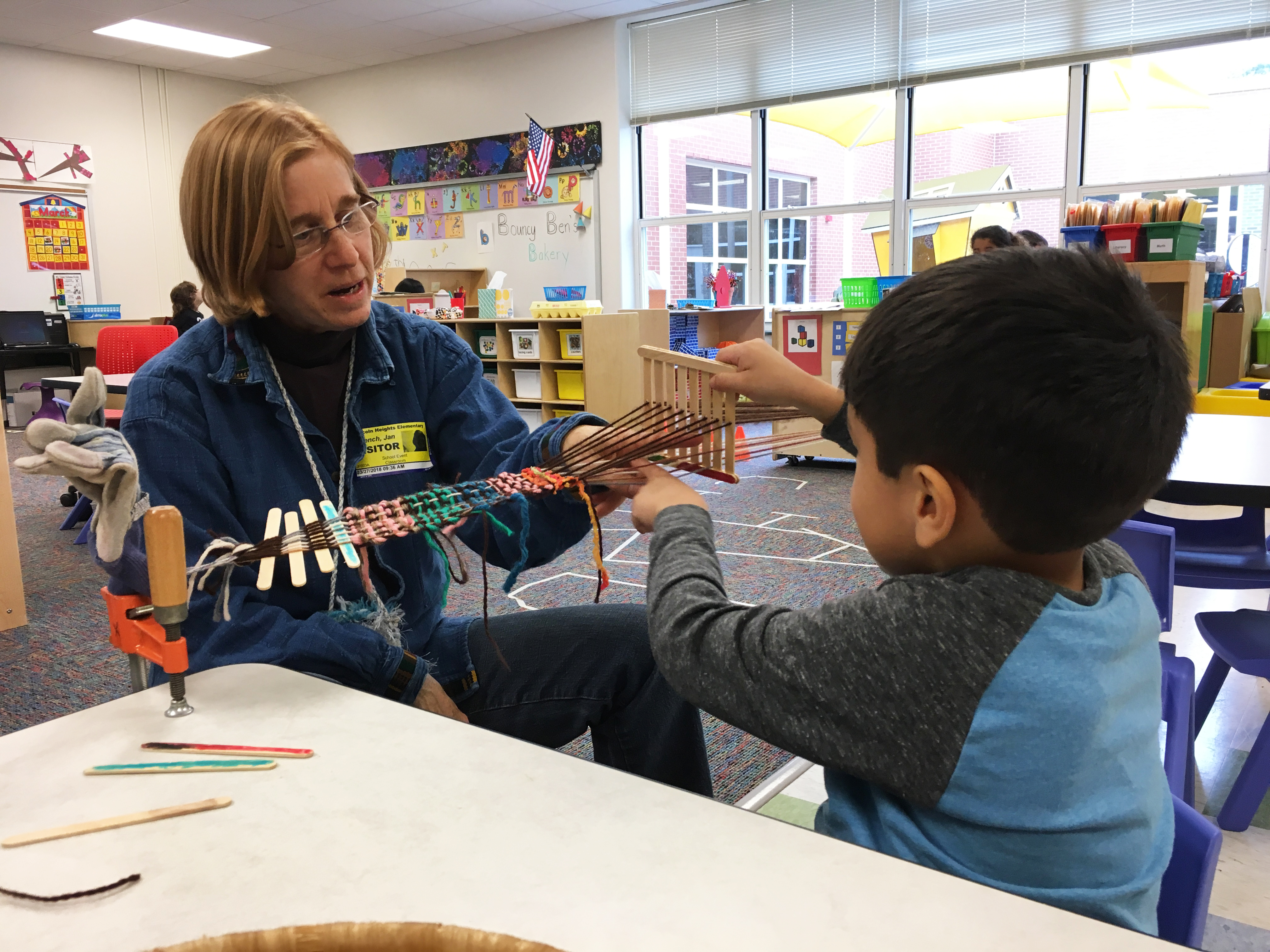Educators and community leaders agree that the arts are good for kids’ mental and social and emotional well-being, helping them develop their identities, build self-esteem and form relationships. However, studies show that kids with disabilities are not meaningfully included in arts opportunities at the same rate as their peers without disabilities, in both school and out-of-school settings. WAIP’s mission is to help change that in Wake County, thanks to help from the John Rex Endowment.
From planning to implementation
“The Endowment gave us a planning grant in early 2016 to survey arts organizations and families of children with disabilities and establish a task force of community stake holders,” says Betsy Ludwig, Arts Access Executive Director. “When we came back with our results and asked for another grant to start improving access, the Endowment suggested we look at improving infrastructure first before taking on a much larger project.”
She adds, “We were able to put into place an additional staff member and strengthen our board, among other things, helping us to move to where we were really ready for the next stage of our plan.”
 WAIP embarked upon an intensive year (2017-18) of work to better prepare arts educators for engaging with school-aged kids with disabilities in both schools and community settings. There were workshops and special programs offered to two community cultural organizations – Raleigh Little Theatre and Artspace – and two Wake County Public School system schools, Lincoln Heights Elementary and Rogers Lane Elementary.
WAIP embarked upon an intensive year (2017-18) of work to better prepare arts educators for engaging with school-aged kids with disabilities in both schools and community settings. There were workshops and special programs offered to two community cultural organizations – Raleigh Little Theatre and Artspace – and two Wake County Public School system schools, Lincoln Heights Elementary and Rogers Lane Elementary.
Now, armed with findings from the pilot year and with the Endowment funding, Arts Access is seeking new project partners who want to participate in WAIP for 2019-20, with the hope of eventually expanding the number of schools and community cultural organizations served.
Changes are taking place at diverse sites
Megan Bostic, Arts Access Programs Manager, says that WAIP is very much a collaborative process in and of itself. “We want buy-in from both the community cultural organizations and the schools who are chosen for this project, because once we have provided a year of intensive support and resources, we want these schools and organizations to keep enabling and improving access on their own.”
Last year’s WAIP workshops included ones on disabilities for arts educators, working artists, cultural organizations and school leaders; assessments of environments provided to those with disabilities  and suggestions on improvements; and planning and training for organizations operating summer arts camps.
and suggestions on improvements; and planning and training for organizations operating summer arts camps.
During 2017-18, workshop participants were many and varied. From the cultural arts side, there were 17 people from six municipalities; 12 people from five museums; five from the state and local arts councils; and 24 people from theater organizations who took part. From the educational organization side, there were 63 people from 27 elementary schools, six people from six middle schools, two people from two high schools and two people from independent schools who participated.
The impact, according to Arts Access, has been both measurable and sustainable. Raleigh Little Theatre performed a successful, sensory-friendly performance of Alice @ Wonderland during spring 2018 and worked to design its programs and camps so that all participants were able to be included in safe, accessible ways. Artspace hosted a day of inclusive art, dance and music for people with and without disabilities, and trained staff to be more aware of welcoming those with access issues.
Both organizations continued their focus on accessibility during 2018-19, with Artspace now hosting an accessible artist in residency, and Raleigh Little Theatre offering a Sensory Friendly Series for the upcoming season.
 Lincoln Heights and Rogers Lane teachers were given individual and group support, teaching tools and methods of interacting with students with disabilities, along with the added inspiration of artists in residence at the schools who could model successful ways to include students with disabilities in arts activities, camps and classes. Feedback from educators was very positive.
Lincoln Heights and Rogers Lane teachers were given individual and group support, teaching tools and methods of interacting with students with disabilities, along with the added inspiration of artists in residence at the schools who could model successful ways to include students with disabilities in arts activities, camps and classes. Feedback from educators was very positive.
As one art teacher at Rogers Lane Elementary put it, “I’ve been with WCPSS for 25 years and I always felt so awkward and clumsy working with students with different needs. But now, I love it!”
Ludwig is excited about what the next round of involvement with WAIP partners will bring. “Our goal for the remainder of the John Rex Endowment grant is to work smartly, share best practices with others and impact as many schools and community cultural organizations as possible in improving access to the arts for children with disabilities.”